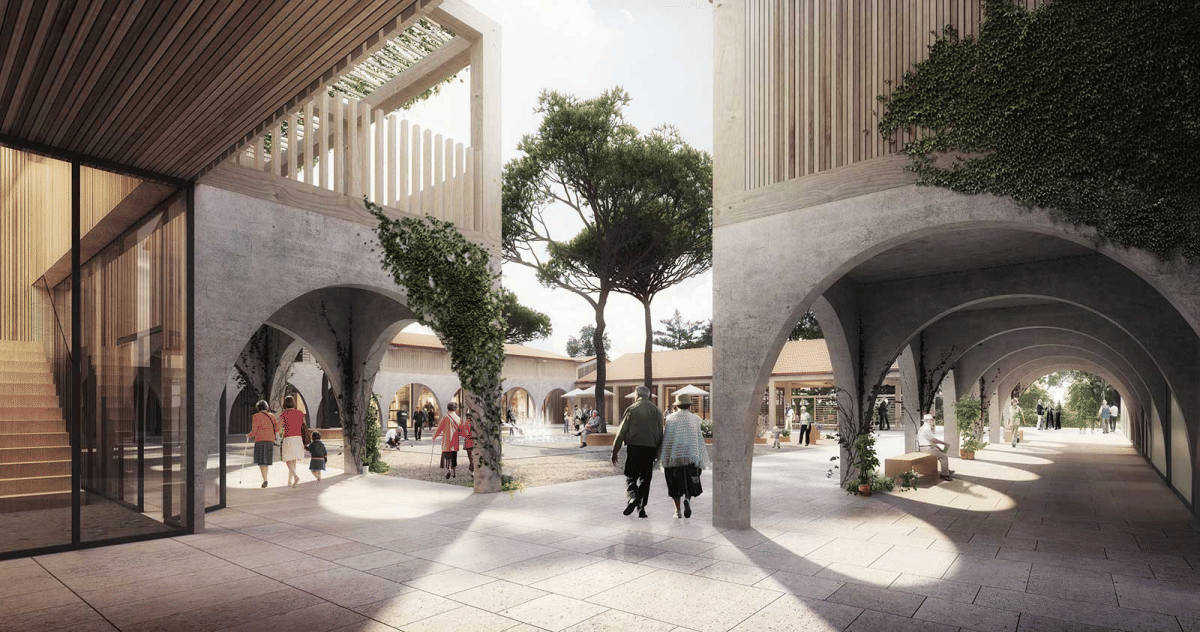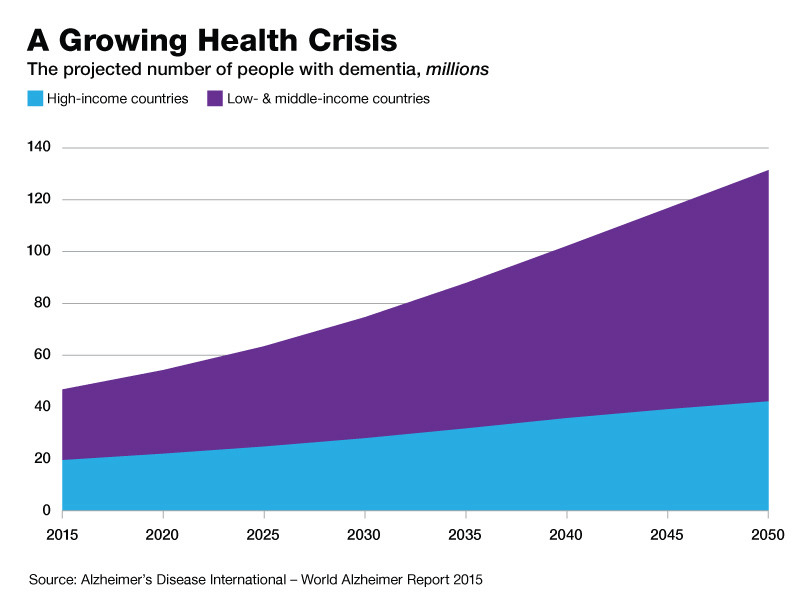The Alzheimer’s village will be designed to aid residents’ sense of direction, visual bearings and memory.
France is building its first “Alzheimer’s village” in an experiment aimed at improving the lives of people with the disease.
Alzheimer’s is the most common form of dementia. It is an irreversible, progressive disorder that damages and eventually destroys brain cells, leading to memory loss and impaired cognitive skills.
The self-contained complex in Dax, a spa town in south-west France, will mimic a small-town community, with a supermarket, health centre, hair salon and library.
The 120 residents will have freedom to move around safely within the village, which will be designed to aid their sense of direction, visual bearings and memory.
Danish practice Nord Architects has a created a scheme with buildings and a square resembling those found in the medieval fortified towns common in the Landes region of southwest France.
Residents will live in small, shared houses, organized into four neighbourhoods, alongside 100 carers and 12 volunteers who will organize activities.

The idea is to create a sense of normality and maintain continuity between Alzheimer’s patients’ former lives and the care facility.
Revolutionizing dementia care
The project is modelled on Hogeweyk, thought to be the world’s first “dementia village”, near Amsterdam, in the Netherlands. There, residents are grouped in shared houses according to their backgrounds and interests, and can help with cooking, cleaning and buy their own groceries.
Several other countries have also created their own versions of the Dutch “dementia village” model. Ireland’s first purpose-built dementia community is due to open later this year. Meanwhile in Tasmania, Australia, work has begun on a dementia village with 15 homes in cul de sacs to reflect the local streetscape and a supermarket, café, cinema and beauty salon.
Proponents of this new way of caring for dementia sufferers say that patients are more active and sociable and require fewer medications than those in standard elderly-care facilities.
In the French village, named Landais Alzheimer, a team of researchers will live alongside the residents and their carers to conduct a study comparing it with traditional residential nursing homes.
Due to open at the end of 2019, the project is expected to cost 28.8 million euros ($33.4 million) to build and is largely government funded, according to reports.
Global health crisis
Dementia has been described as one of the biggest global health crises of the 21st century. Around 50 million people worldwide have dementia, and there are nearly 10 million new cases every year. The estimated annual global cost of the disease is $818 billion, according to the World Health Organization.

And as the global population ages, the number of people with dementia is set to increase rapidly – to 152 million by 2050.
Rosamond Hutt is a senior producer at Formative Content.
This article was originally published on World Economic Forum. Read the original article.






